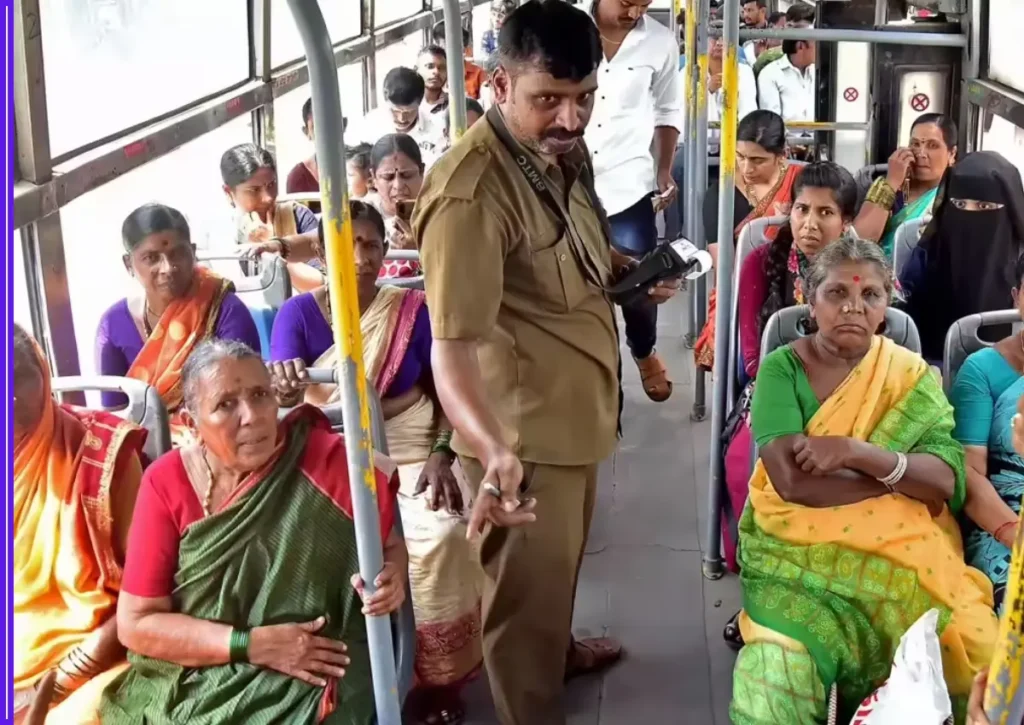A new multi-state study has found that full-fare subsidy schemes for women on local buses in Delhi and Karnataka have achieved greater success in improving female mobility than Maharashtra’s half-ticket scheme for inter-city buses.
According to data released from the study, more than 40 percent of women in Maharashtra’s major cities—Mumbai, Pune, and Nagpur—said they did not change their travel patterns despite being eligible for the 50 percent fare concession under the Mahila Samman Yojana. Only 10 percent of respondents said they were able to travel longer distances as a result of the scheme.

In contrast, cities like Delhi, Bengaluru, and Hubballi-Dharwad saw higher usage and reported greater mobility benefits after full-fare schemes were launched. In these regions, around 32 percent of women said they began traveling farther than before, and over a quarter of them shifted to using buses more frequently.
Karnataka’s Shakti scheme, which was launched on June 11, 2023, allows state-resident women to travel free on non-premium government-run buses. The program has recorded over 497 crore tickets issued to women by July 2025, with a total ticket value of ₹12,600 crore. Officials said more than 73 lakh free tickets are issued to women each day.
In Mysuru district alone, over 31 crore free journeys by women have been recorded, accounting for more than two-thirds of the total ridership. The increased footfall on buses has not only helped improve mobility but also boosted revenue collections from non-ticketing sources.
Delhi’s Pink Ticket scheme, introduced in 2019, has also demonstrated high adoption. More than 100 crore pink tickets were issued by 2023, with a notable rise in women’s participation in the workforce and access to education.
In Maharashtra, the half-fare scheme on inter-city buses has seen limited success. Experts noted that long-distance travel is not a daily activity for most women, especially those from low-income backgrounds. Many rely on short-distance city buses for commuting to work, schools, or healthcare centers. Since the scheme applies mainly to state-run inter-city buses, its relevance to women’s daily lives remains low.
The study highlighted that meaningful empowerment comes from enabling daily travel, not just occasional long-distance movement. Researchers pointed out that intra-city connectivity and last-mile access are more important to most working women, especially in urban and semi-urban areas.
However, the schemes are not without challenges. In Karnataka, overcrowding during peak hours and reduced seat availability for men have become points of contention. Some transport unions have raised concerns over capacity constraints and the financial sustainability of offering free rides without expanding infrastructure. There is also growing debate about whether such universal schemes should be targeted based on income levels.
Despite the issues, many women in Karnataka shared positive feedback. Daily commuters said they saved between ₹50 to ₹200 per day, allowing them to invest more in family welfare, food, and education. Several women also reported feeling more independent and less dependent on male family members for travel.
Policymakers in other states have taken note of Karnataka’s and Delhi’s approaches as models for inclusive urban transport. Analysts believe that such schemes, if planned well and supported with strong infrastructure, can reshape gender equity in public transport.
The report concluded that for gender-focused mobility programs to be effective, they must prioritize regular, affordable, and safe access over symbolic or one-time benefits. Local bus subsidies, especially full-fare waivers, have shown greater impact in empowering women across class lines.
The study was conducted using data from public transport authorities, beneficiary surveys, and ridership patterns across three major Indian states between 2023 and 2025.









